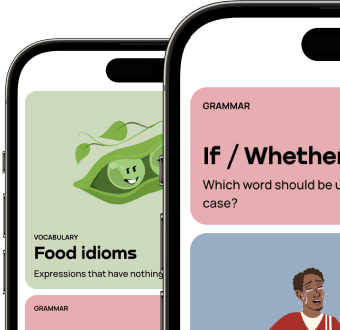Passé composé vs Imparfait – The difference between French past tenses
Contents
Key takeaways
- Passé composé describes completed past actions or events.
- Imparfait describes ongoing, repeated, or background actions in the past.
- Passé composé = “What happened?” | Imparfait = “What was it like?”
- Both often appear together in storytelling.
- Practice is key to knowing when to use each tense naturally.
Why Two French Past Tenses?
English often uses only one form (I ate, I was eating), but French splits past events into two main tenses:
- Passé composé → for single, completed events.
- Imparfait → for descriptions, habits, or ongoing past actions.
How to Form Each Tense
Passé Composé Formula
Auxiliary (avoir/être) + past participle
- J’ai mangé. → I ate.
- Elle est allée. → She went.
Imparfait Formula
Stem of nous form (present) – ons + endings (-ais, -ais, -ait, -ions, -iez, -aient)
- Je mangeais. → I was eating.
- Nous finissions. → We were finishing.
When to Use Passé Composé
Completed past actions
- J’ai regardé un film hier. → I watched a movie yesterday.
Single events
- Il a frappé à la porte. → He knocked on the door.
Change or new action
- Soudain, elle est partie. → Suddenly, she left.
When to Use Imparfait
Background description
- Il faisait beau. → The weather was nice.
Habitual actions
- Quand j’étais enfant, je jouais au foot. → When I was a child, I used to play soccer.
Ongoing past actions
- Je lisais pendant qu’il écrivait. → I was reading while he was writing.
1
Passé Composé vs Imparfait Side by Side
| Situation | Passé Composé | Imparfait |
| Completed action | J’ai étudié hier soir. | – |
| Habitual action | – | Je lisais chaque soir. |
| Background | – | La maison était grande. |
| Sudden change | Il a commencé à pleuvoir. | – |
| Interrupted action | Il est entré quand je lisais. | Je lisais quand il est entré. |
Use passé composé for the event, imparfait for the context.
Imparfait and Passé Composé Together
They often appear in the same story:
- Je lisais un livre quand il a téléphoné.
→ I was reading a book when he called. - Il faisait froid et la neige tombait. Soudain, j’ai entendu un bruit.
→ It was cold and the snow was falling. Suddenly, I heard a noise.
Common Mistakes
- Overusing passé composé for background descriptions.
- Using imparfait for a single, sudden event.
- Forgetting that both tenses can appear together in one sentence.
Practice Sentences
1. Choose passé composé or imparfait
- Hier, nous ________ (aller) au marché.
- Quand j’étais jeune, je ________ (jouer) dehors.
- Pendant qu’il ________ (parler), elle est sortie.
2. Translate into French
- It was raining when I arrived.
- We ate at a restaurant yesterday.
- She used to live in Paris.
3. Correct the mistakes
- ❌ Hier, je mangeais un gâteau. (single completed action)
- ❌ Quand j’étais enfant, j’ai joué au foot chaque jour. (habitual)
Answers
- sommes allés | jouais | parlait
- Il pleuvait quand je suis arrivé | Nous avons mangé au restaurant hier | Elle habitait à Paris
- Hier, j’ai mangé un gâteau | Quand j’étais enfant, je jouais au foot chaque jour
Tips for Mastering Passé Composé vs Imparfait
- Ask yourself: Is it a completed event or a description/habit?
- Look for keywords:
- Passé composé → hier, soudain, une fois, tout à coup.
- Imparfait → toujours, souvent, d’habitude, pendant que.
- Practice with stories: set the scene in imparfait, add the events in passé composé.
For smart learning methods, see learning French effectively. And to plan your journey, check how long it takes to learn French fluently.
Summary
The difference between passé composé and imparfait lies in perspective:
- Passé composé = completed action or event.
- Imparfait = ongoing, descriptive, or habitual action.
By studying explanations like Kwiziq’s guide on passé composé vs imparfait and French with Agnes’ tips on passé composé vs imparfait, you’ll gain clarity. With practice, combining them in stories will feel natural as your French language hub.

Comments